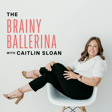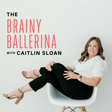
60. Building New Narratives: Autumn Klein’s Unconventional Path Back to Ballet
In this candid conversation, I’m joined by Autumn Klein, a principal dancer and accomplished artist whose career includes performing with Texas Ballet Theater, Oklahoma City Ballet, Ballet Frontier, and Ballet North Texas. Autumn, who is also the co-founder of New Narratives Dance, shares her unconventional journey through the dance world - from overcoming gaps in her classical training, stepping away from dance to attend college, and rising to the rank of principal after returning to her professional ballet career.
Key “Pointes” in this Episode
🩰The culture shock of transitioning from competition dance to full-time ballet training at Houston Ballet
🩰Her experiences dancing with renowned companies and eventually becoming a principal dancer at Oklahoma City Ballet
🩰The challenges of burnout, stepping away from dance to attend college and join AmeriCorps and how she found her way back to the stage
🩰Building a massive social media presence (3M+ followers on TikTok) and pioneering her popular pointe painting
🩰The creation of New Narratives Dance, a contemporary ballet company focused on bold storytelling
Autumn also shares valuable advice on balancing a multifaceted career, finding the right company fit, and building an authentic social media community.
Connect with Autumn:
YOUTUBE: https://youtube.com/@autumnsklein
TIKTOK: https://www.tiktok.com/@autumnsklein
INSTAGRAM: instagram.com/autumnsklein
Links and Resources:
Visit the Ballet Help Desk: https://ballethelpdesk.com/
Get your copy of The Intentional Career Handbook
1-1 Career Mentoring: book your complimentary career call
Let’s connect!
My WEBSITE: thebrainyballerina.com
INSTAGRAM: instagram.com/thebrainyballerina
Questions/comments? Email me at caitlin@thebrainyballerina.com

